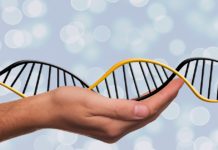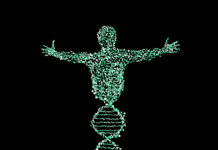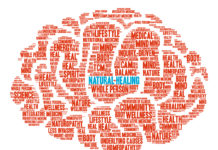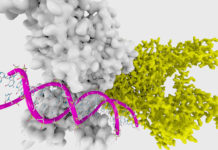Is The Microbiome our Puppeteer?
“My message today is that your state of gut will affect your state of mind. To have a healthy brain, we may need a...
Search for Schizophrenia Gene Marches On
In a study released June 6, 2012 through the online journal Behavioral and Brain Functions, researchers from Japan acknowledge that "the results of association...
Mental Health Professionals Critique the Biomedical Model of Psychological Problems
While a great deal of the excitement about advances in psychological treatments comes from the potential for research in neuroscience to unlock the secrets of the brain, many mental health experts would like to temper this enthusiasm. A special issue of the Behavior Therapist released this month calls into question the predominant conception of mental illnesses as brain disorders.
“Loneliness May Warp Our Genes, And Our Immune Systems”
NPR reports how loneliness can change our bodies and affect our physical and mental health. "There are things we can do to get out of a depressed or lonely state, but they're not easy," they report. "Part of the reason is because these negative psychological states develop some kind of molecular momentum."
The Genetics of Depression: “Look to the Environment”
A comprehensive review of research on the genetics of depression up to 2012, published online today by Psychological Bulletin, finds "a continued lack of...
“The Life and Times of Strider Wolf”
In the Boston Globe, Sarah Schweitzer tells the story of a young boy brutally abused by his parents then given to his grandparents who struggled with extreme poverty and homelessness. “Researchers now understood that trauma could alter the chemistry of developing brains and disrupt the systems that help a person handle stress, propelling a perpetual state of high alert. The consequences could be lifelong. As an adult, he’d be more likely to suffer anxiety and depression and heart disease and stroke. His ability to hold a job, manage money, and make good decisions could be compromised. And there was evidence, controversial but mounting, that he could pass on these traits to his children.”
Are We “Plastic People”?
-How are learnings in epigenetics re-defining human bodies and brains, and what does that mean for our ideas about "normalcy"?
Does Depression run in Families?
From U.S. News: A variety of research shows that children of parents diagnosed with depression are more likely to experience depression themselves. However, it is...
Yoga and Meditation Can Change Your Genes, Study Says
From TIME: A new scientific review suggests that yoga, meditation, and other mindfulness activities can reverse stress-related changes in genes linked to health problems and...
It is Time to Abandon the Candidate-Gene Approach to Depression
The candidate-gene approach to depression goes unsupported and is likely based on bad science, new research finds.
Researchers Question Link Between Genetics and Depression
A new study, published in the journal Molecular Psychiatry, found no link between genetics and the occurrence of depressive symptoms.
How We Can Inherit Trauma and Resilience
Philip Perry, writing for Big Think, covers studies in epigenetics revealing how trauma can be passed on through generations.
Article →
Reimagining Healthcare
The conventional Western classification systems of health conditions are based on flawed science shaped by reductionist, hierarchical, and profit-driven ideologies. THEN wants to create a new paradigm built upon principles drawn from systems science, the life course perspective, developmental neurobiology, and other evidence-informed studies.
Neurosexism: Study Questions Validity of Gender-based Neuroscientific Results
Neuroscientific results that class humans into two categories, “male” and “female,” tend to reify gender stereotypes by giving them the appearance of objective scientific truth.
Large Study Finds Epigenetic Changes Associated with Trauma Explained by Smoking
A new study suggests that epigenetic changes that have been associated with trauma may actually be due to environmental toxins.
Large Rigorous Study Debunks Popular Gene-Environment Theory of Depression
A large and rigorous meta-analysis fails to find support for the gene-environment interaction theory of depression.
When is Stress Good for You?
In this piece for Aeon, Bruce McEwen discusses how "good stress," "tolerable stress," and "toxic stress" act epigenetically on our brain structure, and how we can...
Researchers Faked Data on Epigenetics of Bipolar Disorder
The British Journal of Psychiatry has issued a retraction of an article purporting to have identified evidence of the epigenetic aspects of bipolar disorder,...
Researchers Investigate Antidepressant-Induced Suicidal Ideation
An increase in suicidal thoughts is a known and serious side-effect for various types of antidepressants. Recent studies suggest that there may be some...
“The Search for Schizophrenia Genes”
MIA contributor Jonathan Leo, writing for Slate, weighs in on the research that claims to have discovered a genetic basis for schizophrenia. “We now...
Study Links Antidepressants and Decreased Coping Behaviors Across Generations
Biologists found that exposure to antidepressants suppresses important survival behaviors in zebrafish, an effect that persisted across three generations and was found to be more severe for males.
How Our Ancestors’ Trauma May Influence Who We Are
In this blog post, Dale M. Kushner explains how the field of epigenetics can illustrate the role of ancestral and transgenerational trauma in shaping our...
Research Finds Parents’ Trauma May Impact Children’s Health
Study uncovers some of the intergenerational consequences of adverse childhood experiences (ACEs).
NIMH Funding Changes Threaten Psychotherapy Research
The National Institute of Mental Health (NIMH) is increasingly shifting its research emphasis toward attempting to uncover biomarkers for “mental diseases,” which may have dramatic consequences for research and training in clinical psychology. In an article to be published in next month’s Professional Psychology: Research and Practice, Marvin Goldfried outlines how the shift in funding priorities for psychological research is tied to the needs of pharmaceutical companies and the biological model in psychiatry.
Researcher Urges Caution When Applying Genetics to Psychiatry
In a review editorial for the journal Psychotherapy and Psychosomatics, neurobiology researcher Steven Dubovsky from the University at Buffalo argues against the adoption of...




















